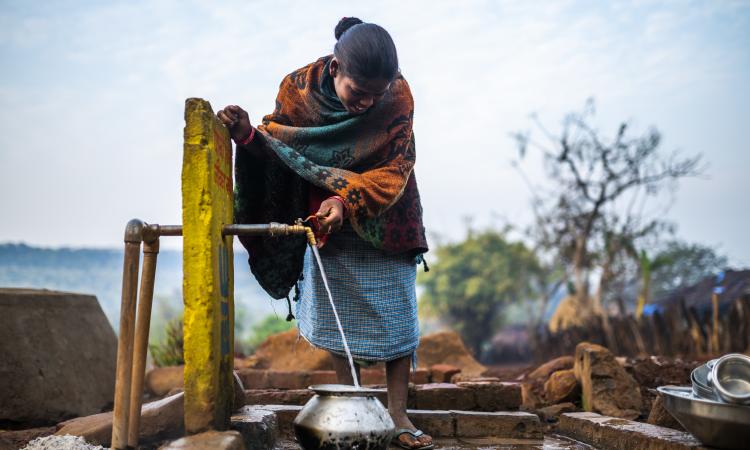
In the heart of rural India, the fight for access to clean water and adequate sanitation frequently determines daily routines. These basic necessities have always been the responsibility of women, who walk great distances to obtain water and manage home cleanliness with limited funds. But today, their role is undergoing a remarkable transformation. No longer just silent sufferers, they are emerging as powerful leaders and catalysts for change within the water, sanitation, and hygiene (WASH) sector.
Access to WASH facilities is fundamental for ensuring the health, safety, and dignity of women, particularly in rural areas of India. A recent report titled “Access to Toilets and the Safety, Convenience, and Self-Respect of Women in Rural India” sheds light on the transformative impact of WASH initiatives on the lives of women in these communities.
The report reveals that, after the construction of toilets, a staggering 93% of women reported feeling safer and more secure. They no longer lived in fear of encountering animals, contracting health infections, or facing the dangers of navigating toilets in the dark of night. This significant improvement underscores the critical role that access to sanitation facilities plays in enhancing the well-being and dignity of women.
"It is imperative to reflect upon the extraordinary journey that women have traversed worldwide, particularly in the realm of water, sanitation, and hygiene. In the relentless pursuit of safeguarding these fundamental benefits for their families, communities, and future generations, women have consistently stood at the vanguard of this movement. Their resilience, persistence, and unwavering commitment to the cause are nothing short of remarkable,” says Meenal Patole, Director – Programmes, WaterAid India.
She goes on to say, “Within the WASH sector, women are transcending traditional roles as mere caregivers and providers; they are emerging as leaders and catalysts for change. Through concerted community mobilisation efforts, impactful lobbying campaigns, and grassroots projects, they are challenging societal norms and championing gender-inclusive laws and programmes. Their voices resonate, their perspectives are esteemed, and their contributions are acknowledged on a global scale.”
The rise of self-help groups (SHGs) is a powerful testament to the transformative potential of women's leadership. These women-led collectives go beyond simply gathering. They foster a spirit of collective action, where women can tackle challenges together. Imagine a group of women, who may have previously felt voiceless, coming together to share their experiences and concerns. Through this exchange, valuable knowledge sharing takes place. They learn from each other's successes and failures, building a collective wisdom that fuels their efforts.
“Very aptly, President Draupadi Murmu's address last year also underscored the crucial role played by women in rural India in advancing both the Jal Jeevan Mission and the Swachh Bharat Mission. Their contributions through self-help groups (SHGs) and community-based organisations have been instrumental in the missions' success,” Meenal Patole further adds.
The positive impact of women's leadership in WASH extends beyond the community level. Improved WASH infrastructure in schools, particularly access to clean toilets and handwashing facilities, directly impacts girls' education. When girls don't have to miss school due to a lack of proper sanitation facilities or the inability to manage their menstrual hygiene needs discreetly, they can focus on their studies and reach their full potential. This paves the way for a more educated and empowered generation of women, creating a powerful ripple effect for positive social change.
The positive impact of enhancing women's access to sanitation facilities in rural India highlights the transformative influence of WASH initiatives. Meeting women's basic needs and guaranteeing their safety, comfort, and dignity have significantly contributed to India's progression towards a cleaner, healthier, and more inclusive society.
However, there remains significant work ahead to ensure that all women have universal access to WASH facilities. Continuous investment and dedication are imperative to uphold and expand upon these achievements. By joining forces and prioritising WASH, we can further empower women, revitalise communities, and forge a brighter future for everyone.
/articles/water-sanitation-and-women-journey-empowerment-rural-india